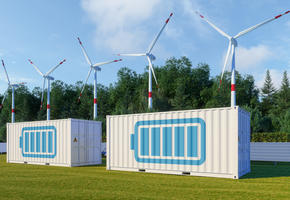Welcome to the third in our four-part series of net zero policy discussions. In each article we look at a different topic that states and regions have discussed as part of the Net Zero Futures Policy Forum.
Each of these topics has been chosen by the governments themselves, after being identified as important to their net zero emissions plans. Through the discussions they have been exploring a range of practical solutions to inform their future climate policies.
About the Net Zero Futures Policy Forum
The Net Zero Futures Policy Forum has been uniting state and regional policymakers from Australia, Europe and South Africa for almost a year now. Co-chaired by New South Wales and Scotland, it’s driving progress on net zero policy making in this critical climate decade.

Last year the Forum launched a series of LEAD (Learn, Engage and Discuss) sessions, for deep dive and practical discussions: the third topic of the series was 'Maintaining social license for bold climate actions'. Through detailed technical presentations, moderated discussions and Q&As, governments shared the most up to date policy information on this multifaceted issue and explored how it might be rolled out in their individual regions.
Engagement is key to achieving net zero targets
While net zero emissions policies provide the groundwork for change, part of their success depends on their adoption and implementation, which are both closely tied to public acceptance. Securing and maintaining support for climate action, and particularly for policies to reach net zero targets, is critical for subnational governments around the world.
Addressing climate change requires not only technical solutions but behavioural changes that at some point will affect all of us. Climate policy's complexity, global scope and far-reaching consequences therefore call for a deeply collaborative approach to policymaking that recognises its ability to support progress across all levels of government.
Making sure people – as citizens, consumers and voters – understand the benefits climate policies can provide in areas such as air quality, health and buildings is essential to cutting dangerous emissions. In Reducing UK emissions Progress Report to Parliament (2020), the UK’s Committee on Climate Change warned that over 60% of the abatement measures essential to 2050 net zero scenarios involve at least some degree of change from consumers (e.g. driving an electric car or installing a heat pump instead of a gas boiler).

But how can this buy-in be obtained and maintained over time? Forum members had the opportunity to exchange views on this topic and hear from subject expert Denise Cauchi, who works as Australia Program Lead at Climate Outreach. This British charity focuses exclusively on public engagement with climate change and helps organisations tell a different climate story - ensuring people trust, support and have a say in the changes needed to tackle climate change.
Maintaining social licence for bold climate action
People’s values, beliefs and attitudes are shaped by their life experiences and where they live. Understanding that the story of climate change is socially constructed at an individual level can enable government officials to better understand people and therefore communicate climate policies in a way that resonates with them. Who delivers the message is as important as how the message is crafted. In her presentation, Denise explained that humans are naturally territorial and identify with their own tribe. While this may sound like oversimplification, it explains why we respond best to messages from the people we consider part of our group – people who reflect our own identity, worldviews, and validate our values.
Climate Outreach suggests that the main pillars of public engagement for governments should be:
1) public awareness, such as communication campaigns
2) public participation in decision-making, including consultations and co-designing of policies
During the LEAD session, the case study Reducing car use in Scotland was showcased as a good example of a program focused on behavioural shift. As part of its evidence-based toolkit, the project developed hypothetical 'pen portraits' of six groups representing different parts of the community, integrating important equity aspects and contributing to the design of evidence-based messages.
Top recommendations
Across the Under2 Coalition there are many examples of deep engagement with citizens, which can support regional authorities in implementing climate policies faster. In the Belgian region of Wallonia, a major effort was made to include citizens in the Air Climate Energy Plan (PACE) by establishing a citizens' panel in 2021.

Composed of 50 citizens, this panel represented society across genders, province/districts, urban and rural areas, ages, socio-occupational status and educational levels. It put forward 168 recommendations for measures to be taken by the government to reduce greenhouse gases by 55% since 1990 by the year 2030.
Looking at one specific sector, the Ministry of Economic and Business Development in Navarra established Dialogue Tables on Climate Change and Energy: a participation process developed to integrate the visions of all those involved in local energy transition. 32 people, representing institutions, unions and associations, exchanged ideas based on active listening and respect for different viewpoints, while focusing on the need for a secure and sustainable energy supply in the region and reducing greenhouse gas emissions.
Three main elements for effective public engagement stood out during this session:
- Effective climate communications and engagement require understanding audiences, their values, beliefs and attitudes.
- There is no single approach that fits best; targeted messaging is key.
- The messenger(s) can be as important as the message itself, so building trust and meaningful connections is essential for community cooperation in net zero policies.
With 64% of people believing climate change to be an emergency, engaging communities on actions and solutions will be a key battleground in the fight to reduce global temperature increases and protect the planet.
We will be publishing the last article in this series over the next month. Keep checking the Climate Group website to explore issues including climate regulation and bold action from subnational governments.



